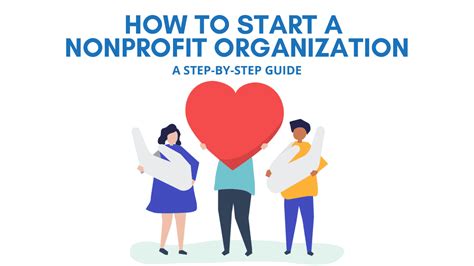In today's digital age, nonprofit organizations rely heavily on technology to achieve their mission and serve their communities. However, managing IT systems can be a daunting task, especially for organizations with limited resources. Effective IT support is crucial to ensure the smooth operation of daily activities, protect sensitive data, and maintain stakeholder trust. In this article, we will explore seven essential IT support tips specifically designed for nonprofit organizations.
Why IT Support Matters for Nonprofits
Nonprofit organizations handle sensitive information, such as donor data, financial records, and personal identifiable information (PII) of beneficiaries. A single security breach or system failure can compromise this data, leading to reputational damage, financial losses, and even loss of funding. Moreover, inefficient IT systems can hinder an organization's ability to deliver services, respond to emergencies, and engage with stakeholders.
Tip 1: Develop a Comprehensive IT Strategy
A well-planned IT strategy is vital for nonprofits to ensure alignment with their organizational goals and objectives. This strategy should encompass:
- IT infrastructure and architecture
- Cybersecurity measures
- Data management and backup procedures
- Software and hardware upgrades
- Staff training and capacity building
By having a clear IT roadmap, nonprofits can prioritize their IT investments, optimize resources, and mitigate potential risks.
Tip 2: Implement Robust Cybersecurity Measures Nonprofits are attractive targets for cybercriminals due to the sensitive data they handle. To protect against cyber threats, nonprofits should: By prioritizing cybersecurity, nonprofits can safeguard their data, maintain stakeholder trust, and avoid reputational damage. Tip 3: Invest in Cloud Computing Cloud computing offers numerous benefits for nonprofits, including: By migrating to the cloud, nonprofits can streamline their operations, reduce IT costs, and focus on their core mission. Tip 4: Leverage IT to Enhance Donor Engagement Nonprofits can leverage IT to build stronger relationships with donors, improve fundraising efforts, and increase engagement. This can be achieved through: By harnessing the power of IT, nonprofits can create a more personalized and engaging experience for their donors, leading to increased loyalty and support. Tip 5: Ensure IT Accessibility and Inclusivity Nonprofits must ensure that their IT systems are accessible and inclusive for all stakeholders, including those with disabilities. This can be achieved through: By prioritizing accessibility and inclusivity, nonprofits can ensure that their IT systems are equitable, usable, and accessible to all. Tip 6: Foster a Culture of IT Literacy Nonprofits must foster a culture of IT literacy among their staff, volunteers, and stakeholders. This can be achieved through: By promoting IT literacy, nonprofits can empower their stakeholders to effectively use technology, reduce IT support requests, and increase overall efficiency. Tip 7: Regularly Evaluate and Improve IT Systems Nonprofits must regularly evaluate and improve their IT systems to ensure they remain effective, efficient, and aligned with organizational goals. This can be achieved through: By regularly evaluating and improving their IT systems, nonprofits can ensure they are leveraging technology to achieve their mission and serve their communities effectively. Conclusion In conclusion, effective IT support is crucial for nonprofit organizations to achieve their mission, serve their communities, and maintain stakeholder trust. By developing a comprehensive IT strategy, implementing robust cybersecurity measures, investing in cloud computing, leveraging IT to enhance donor engagement, ensuring IT accessibility and inclusivity, fostering a culture of IT literacy, and regularly evaluating and improving IT systems, nonprofits can harness the power of technology to drive positive change. We encourage you to share your thoughts and experiences on IT support for nonprofit organizations in the comments section below. Effective IT support is crucial for nonprofit organizations to ensure the smooth operation of daily activities, protect sensitive data, and maintain stakeholder trust. Nonprofit organizations can ensure IT accessibility and inclusivity by conducting website accessibility audits, providing accessibility training for staff, selecting inclusive software and hardware, and offering closed captions and audio descriptions for multimedia content. Cloud computing offers numerous benefits for nonprofit organizations, including scalability and flexibility, cost savings, increased collaboration and productivity, and enhanced data security and backup.
Cybersecurity Best Practices for Nonprofits

Donor Engagement Strategies for Nonprofits

IT Literacy Strategies for Nonprofits





What is the importance of IT support for nonprofit organizations?
+
How can nonprofit organizations ensure IT accessibility and inclusivity?
+
What are the benefits of cloud computing for nonprofit organizations?
+
